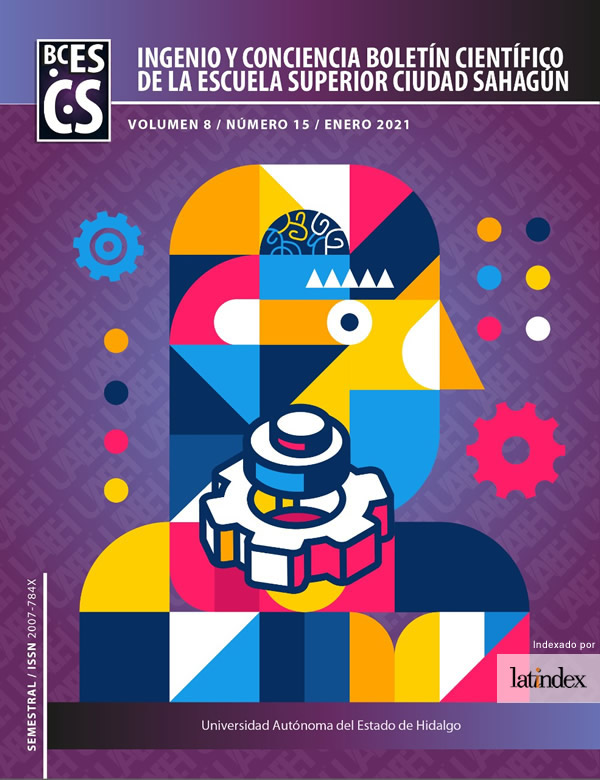Industry 4.0 in rural areas
An approach to his study
Abstract
Do the technological infrastructure and educational conditions of rural areas positively impact the development of digital skills of the population to implement digital technology in productive activities? Under this question, the present study is carried out, which aimed to make an exploratory study of the characteristics of the state of the art in this subject, where it was identified that the main study area is the education sector and the main variables addressed are educational conditions and access to infrastructure. The methodology used was documentary, through the review of 20 Elsevier scientific articles.
Downloads
References
Digital y la alfabetización en nuevas tecnologías. Revista Electrónica Educare. https://doi.org/10.15359/ree.21-2.9
Conceição, P. (2019). Informe sobre Desarrollo Humano 2019. Programa de Las Naciones Unidas Para El Desarrollo.
Consejo Nacional de Evaluacion de la Politica de Desarrollo Social/CONEVAL. (2018). Estudio diagnostico del derecho a la educacion 2018.
Gómez Oliver, L., & Tacuba Santos, A. (2017). The rural development policy in Mexico . Economía UNAM, 14(42), 93–117. https://doi.org/10.1016/j.eunam.2017.09.004
Guzmán Games, F. (2017). Freire en la era digital: opresión y liberación de pueblos indígenas mediante las TIC. Innovación Educativa, 17(75), 9–28.
Organista Sandoval, J. (2017). Semáforo de habilidad digital para estudiantes universitarios. Revista de Estudios y Experiencias En Educación, 16(32), 99–110. https://doi.org/10.21703/rexe.201732991106
Peraza, J., Quiñones, Y., & Lizarraga, C. (2017). Haciendo el Internet Accesible , un Paso más Hacia la Universalidad de la Información Making the Internet Accessible , a Step Toward Universality. ReCIBE. Revista Electrónica de Computación, Informática, Biomédica y Electrónica, 6, 61–75.
Quiñonez Pech, S. H., Zapata González, A., & Canto Herrera, P. J. (2020). Competencia digital en niños de educación básica del sureste de México. RICSH Revista Iberoamericana de Las Ciencias Sociales y Humanísticas, 9(17), 289–311. https://doi.org/10.23913/ricsh.v9i17.199
Radicelli-Garcia, C. D., & Cardona-Marcet, N. (2016). Configurable parameters of physical and MAC layer of a new DTT standard wireless return channel to provide Internet connectivity in rural areas of Latin America Parámetros configurables de capa física y MAC de un nuevo estándar de TDT con canal de retorno. Dyna, 83, 16–25.
Rodriguez Espinosa, H., Restrepo Betancur, L. F., & Aranzazu Taborda, D. (2016). Desarrollo de habilidades digitales docentes para implementar ambientes virtuales de aprendizaje en la docencia universitaria. Sophia, 12, 261–270.
Rodriguez Espinosa, H., Restrepo Betancur, L. F., & García Henao, G. (2017). Habilidades digitales y uso de teléfonos inteligentes ( smartphones ) en el aprendizaje en la educación superior *. Revista Virtual Universidad Católica Del Norte.
Trendov, N. M., Samuel, V., & Zeng, M. (2019). Tecnologías digitales en la agricultura y las zonas rurales. Tecnologías Digitales. https://doi.org/10.2307/j.ctvt6rmh6
Xosé, F., Quintá, A., Camilo, R., González, L., Carlos, X., & Arce, M. (2018). Los Servicios Avanzados de Internet : Nuevas oportunidades para el desarrollo de los territorios rurales [ en ] Advanced Internet Services : New opportunities for rural territorial development [ fr ] Les Services Avancés d ´ Internet : De nouvelles opport. Anales de Geografía de La Universidad Complutense, 38(2), 271–287.











